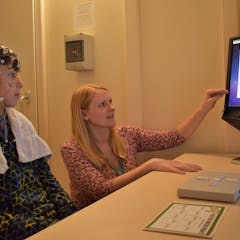
Articles on Health
Displaying 1721 - 1740 of 2517 articles

As many people have died with COVID in Australia – more than 1,000 – as die from a bad year from influenza. Attention on them doesn’t seem to have spiked proportionately.

Child care workers are at the center of the food insecurity crisis in America. In 2020, nearly one-third of them were food insecure.

‘One of the greatest honours of my career thus far.’

Addressing racial and ethnic health gaps is becoming even more important as the US population continues its shift toward a minority-majority nation.

Sugar gets a bad rap, but exactly which sugar is meant? Nutrient-dense sweet ripe fruits are a far cry from refined table sugar – and their differences can have big health implications.

The new year is a perfect time to adopt new health habits and routines. These four scholars reflect on the ways that they overcame the pandemic blues to get fit.

Just because something is sweet doesn’t necessarily mean it is sugary. There are a number of molecules that taste sweet. To understand how and why takes a little bit of chemistry.

There are many reasons to be pessimistic about the future – but what if we got it right? Here’s the case for optimism.

Celebrity diets are nothing new, they were popular centuries ago, a trip through history shows.

Children with dyslexia seem to find it more difficult to judge the direction of moving dots - this could explain why reading is also more challenging.

A new study looked at advertising and purchase data for children’s drinks and suggests that ads and pricing strategies contribute to sweetened children’s drink purchases.

Budgets on their own don’t solve structural issues. But they do provide some insight into government plans for addressing its broader developmental priorities.

Many of the temperatures presently being recorded in Africa, and those projected in the next decade, are already close to the limits of human survival, or “liveability”.

The Chronicle of Philanthropy’s latest ranking indicates that the coronavirus and heightened awareness about racism made a difference, but not necessarily a lasting one.

Was participating in ceremony despite pandemic restrictions an act of Indigenous resistance and resurgence and did it reflect reassertion of nationhood and self-determination?

Women and girls in low-income countries are disproportionately likely to be affected by the plastic waste that’s flooding our planet.

A food historian spent a month at the Library of Congress trying to answer the question of why we have historically been, and remain, so focused on dietary protein. Here is what she found.

Researchers are uncovering how microplastic particles are carried in wind, rain and snow to remote regions of our planet.

Researchers asked aid workers how to best prepare for the climate emergency in places where its effects are most severe.

Three tobacco-flavored cartridges and a vaping device have been approved by the FDA for sale in the US. It comes after a decadelong debate over e-cigarettes.

